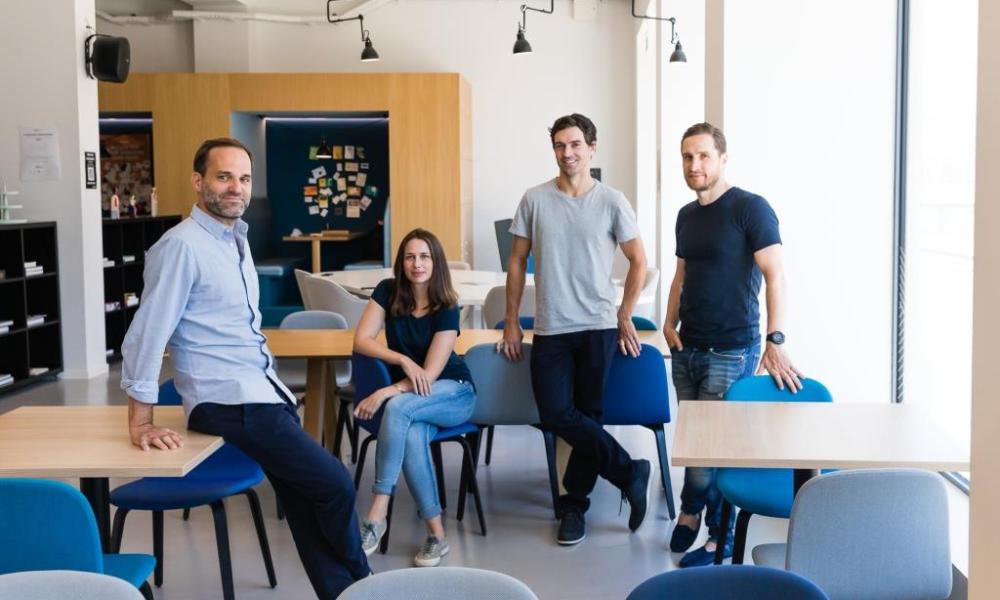By Kestér Kenn Klomegâh
The African peace mission on the Russia-Ukraine crisis comprised four presidents: President of the Republic of South Africa, Cyril Ramaphosa, the head of the Mediation Group. The current Chairman of the African Union (AU) and President of the Union of Comoros Azali Assoumani; the President of the Republic of Senegal, Macky Sall and the President of the Republic of Zambia, Hakainde Hichilema.
The mission was also expected to include the leaders of Egypt, the Republic of the Congo and Uganda. Egypt was represented by the country’s prime minister, President of the Republic of Uganda Yoweri Museveni was diagnosed with the coronavirus right before the trip, while his Congolese counterpart Denis Sassou Nguesso decided not to take part.
The high-ranking delegation went through Warsaw, Poland and then by train to Kiev and St. Petersburg. In the run-up to his departure, Ramaphosa said that “the conflict between Ukraine and Russia is a grave situation that affects all of us in an interconnected world.”
United Nations Resolutions: More than half of Africa’s 55 states voted in favour of United Nations resolutions condemning the invasion of Ukraine, while most of the rest abstained. Many African states have maintained a non-aligned position, but Washington says these African leaders must necessarily define the “true non-alignment” position.
One distinctive feature is that Africans have different views on the conflict. South Africa and Uganda are seen as leaning towards Russia, while Zambia and Comoros are closer to the West. Egypt, Senegal and Congo-Brazzaville have remained largely neutral.
Ramaphosa’s government has come under growing pressure from the United States because of its alleged support for Russia.
Reasons: The key aim of the African peace mission is primarily to propose “confidence-building measures” in order to facilitate peace between the two countries. It was to seek a peaceful settlement of the conflict, which began on February 22, 2022.
Russia referred to it as a “special military operation” largely directed at “demilitarization” and “denazification” in neighbouring Ukraine. Both Russia and Ukraine were part of the Soviet Union. After the Soviet collapse in 1991, both as independent states have, in the first instance, legal claims to their territorial integrity and political sovereignty within international law.
The African delegation had on their agenda to discuss the export of Ukrainian grain and Russian fertilizers. As well-known, the Russia-Ukraine crisis, as well as the sanctions, have had an adverse effect on African economies and livelihoods. But most of the African countries have claimed neutrality in the conflict, and Moscow has long nurtured good political relations with the governments on the African continent.
Russians are currently in a dilemma. They are globetrotting for Soviet-era friends and to avoid isolation. Russians are soliciting support for its illegal invasion of Ukraine. This is different from the emerging multipolar world. A multipolar world must have relative peace and be more integrative, but Russia has partitioned the world.
Background: Russian President Vladimir Putin insisted that he was still open to any contacts to discuss possible scenarios for and taking a resolution of the Ukraine conflict. Russia is open to negotiations. We know that Moscow has already annexed four regions in eastern and southern Ukraine and the Crimea peninsula, which it seized in 2014.
Ukraine wants to protect its territory from illegal encroachment. It clearly says its peace plan, which envisages the withdrawal of Russian troops from all Ukrainian land, must be the basis for any war settlement.
What documents say: The peace mission could propose a series of “confidence-building measures” during initial efforts at mediation, according to a draft framework document. The document states that the mission’s objective is “to promote the importance of peace and to encourage the parties to agree to a diplomacy-led process of negotiations”.
According to a framework document, those measures could include a Russian troop pull-back, removal of tactical nuclear weapons from Belarus, suspension of implementation of an International Criminal Court arrest warrant targeting Putin, and sanctions relief, it indicated.
The document stated that a cessation of hostilities agreement could follow and would need to be accompanied by negotiations between Russia and the West. Kyiv says its plan, which envisages the withdrawal of Russian troops from Ukrainian land, must be the basis for any settlement of the war.
How it started: The main organizer of this peace mission is the non-profit Brazzaville Foundation based in Britain. Jean-Yves Ollivier has described the mission’s goals as modest.
He said the aim was to start talking rather than to resolve the conflict, to begin a dialogue on issues that do not directly affect the military situation and build from there.
The other is to try and find solutions to issues that matter to Africa, like grain and fertilizer. Ollivier expected African leaders to persuade the Russians to extend the fragile agreement that allows Ukraine to ship grain through the Black Sea.
Ollivier heads a UK-based organization known as the Brazzaville Foundation, which focuses primarily on African peace and development initiatives.
Like this:
Like Loading…
Related




